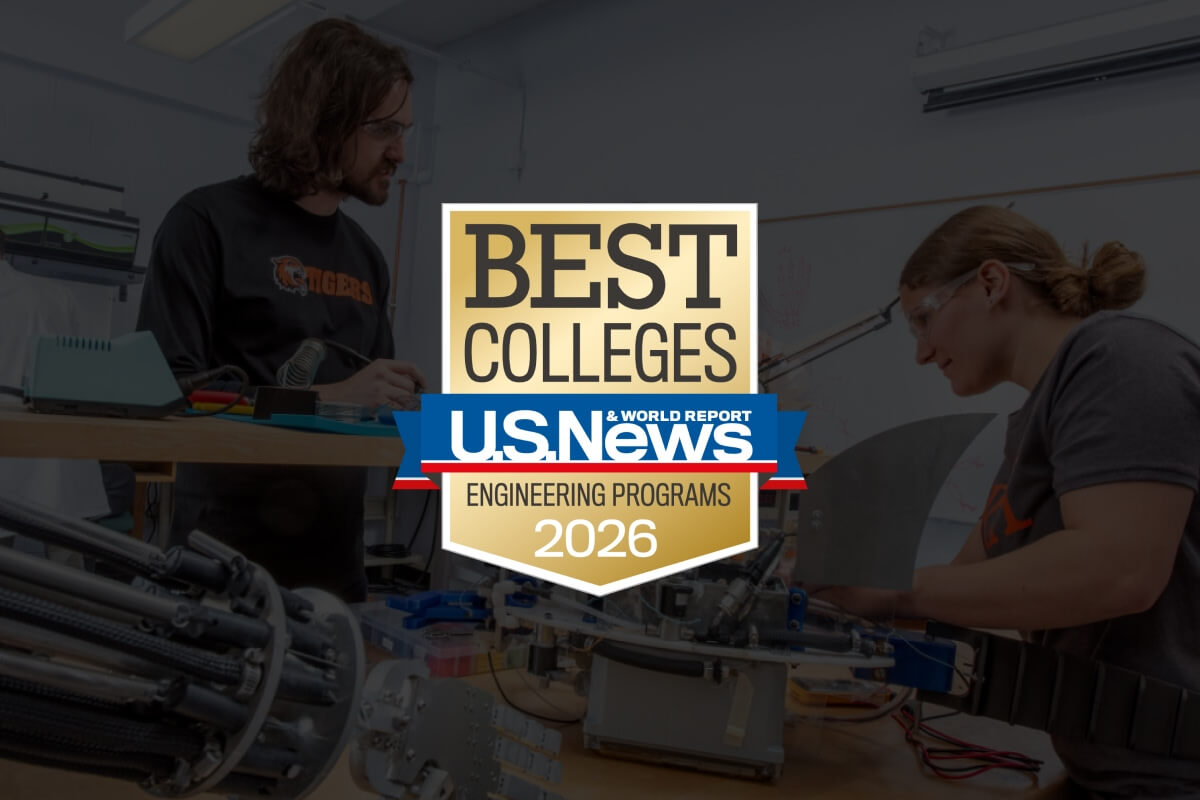Automotive Engineering Option - Mechanical Engineering BS

Automotive Engineering Option
Mechanical Engineering BS
- RIT /
- College of Engineering /
- Academics /
- Automotive Engineering Option - Mechanical Engineering BS
Study vehicle systems, powertrains, dynamics, and design in RIT’s automotive engineering option.
Overview for Automotive Engineering Option - Mechanical Engineering BS
Why Study Automotive Engineering at RIT?
Hands-On Experience: Obtain valuable employment experience in your field by participating in a co-op.
Specialized Advanced Electives: Gain a comprehensive understanding of automotive design and manufacturing, vehicle power plants, dynamics, control systems, and more.
Exciting Capstone Project: Complete a design project that focuses on solving or advancing an aspect of automotive engineering.
STEM-OPT Visa Eligible: The STEM Optional Practical Training (OPT) program allows full-time, on-campus international students on an F-1 student visa to stay and work in the U.S. for up to three years after graduation.
Modern automotive engineering entails the design of engines and automotive components such as braking, powertrain systems, vehicle dynamics, lighting systems, transmission, and fuel economy. The automotive engineering option offers specialized advanced electives that provide a comprehensive understanding of automotive design and manufacturing, vehicle power plants, dynamics, control systems, and more.
This option is part of the mechanical engineering BS degree.
Automotive Engineering Courses
RIT's mechanical engineering major in automotive engineering begins with a course sequence that starts in the third year of your mechanical engineering program. This ensures that you have developed the foundational mechanical engineering skills needed for specialization in more advanced coursework that focuses on the principles and dynamics of automotive engineering. Automotive engineering courses include an introductory course (Contemporary Issues in Automotive Engineering) followed by courses in areas such as strength of materials, thermodynamics, internal combustion engines, powertrain systems and design, vehicle dynamics, manufacturing processes, and sustainable energy for transportation.
Multidisciplinary Senior Design
Multidisciplinary Senior Design is a two-course sequence in your final year of study. It’s a capstone learning experience that integrates engineering theory, principles, and processes within a collaborative team environment. Multidisciplinary student teams follow an engineering design process, which includes assessing customer needs, developing engineering specifications, generating and evaluating concepts, choosing an approach, completing systems and subsystems designs, and implementing the design to the extent feasible, for example, by building and testing a prototype or implementing a chosen set of improvements to a process. You’ll apply the knowledge you have learned in the classroom and from your co-op experiences to this design project. Students in the automotive engineering option are expected to work on a design project that focuses on solving or advancing an aspect of automotive engineering.
-
#57 Best Engineering Undergraduate Programs, 2026
RIT’s engineering majors are ranked among the Best Undergraduate Engineering Programs in the nation.
-
Apply by January 15 for Fall 2026
Get your first-year application in and receive a decision by mid-March.
-
Join Us for Accepted Student Open House
Visit campus on March 28 or April 11 to meet faculty, tour campus, and ask your questions.
Careers and Cooperative Education
Cooperative Education
What’s different about an RIT education? It’s the career experience you gain by completing cooperative education and internships with top companies in every single industry. You’ll earn more than a degree. You’ll gain real-world career experience that sets you apart.
Co-ops and internships take your knowledge and turn it into know-how. Your engineering co-ops will provide hands-on experience that enables you to apply your engineering knowledge in professional settings while you make valuable connections between classwork and real-world applications.
All engineering majors are required to complete four blocks (48 weeks) of cooperative education experience. For students in the automotive engineering option, your co-ops are expected to take place in automotive companies or in organizations that support the automotive industry. A sample of automotive companies that hire RIT students for co-ops and for full-time employment includes American Axle & Manufacturing, Borg Warner, Cummins Engine, Daimler Chrysler, Ford, General Motors, Harley Davidson, Pratt & Miller Engineering, Tesla, and Toyota, to name a few.
Admissions and Financial Aid
This program is STEM designated when studying on campus and full time.
This option is part of the mechanical engineering BS. Please visit the degree program page for admission requirements.
Financial Aid and Scholarships
100% of all incoming first-year and transfer students receive aid.
RIT’s personalized and comprehensive financial aid program includes scholarships, grants, loans, and campus employment programs. When all these are put to work, your actual cost may be much lower than the published estimated cost of attendance.
Learn more about financial aid and scholarships





